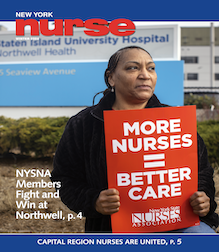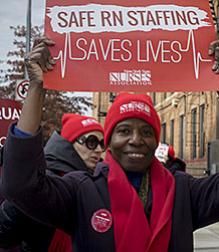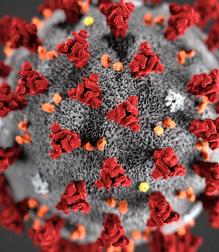NYSNA’s own Sean Petty, RN, spoke with Phil Aroneanu, the U.S. Campaign Director and Co-Founder of 350.org.
The experience of Superstorm Sandy has made the issue of climate change a very urgent question. What is the connection between climate change and storms like Sandy?
The connection is very clear. Scientists have been warning us for years that storms like Sandy will hit major population centers like New York City. This fall, the average temperature of the Atlantic Ocean was 5 degrees warmer. This made a huge difference in terms of the size of the storm. The warmer water also impacted the Gulf Stream which pushed the storm further north into part of the country where it wouldn’t normally go. In addition, the unprecedented melting of arctic ice sheets resulted in a one foot rise in the sea level. All of these factors combined to make a storm that would have normally been destructive and turn it into a complete disaster.
If climate change can have such truly devastating consequences, why do think more hasn't been done to address it?
Because the fossil fuel industry is the most powerful industry in the history of the world, many of our institutions and their decisions are rigged in their favor.
Dr. James Hansen, one of the most prominent climate scientist in the country, testified to Congress in 1988 about the disastrous consequences of our continued reliance on fossil fuels and existence of global warming. From that point on, fossil fuel companies have spent millions of dollars placing doubt in the public mind about the existence of climate change.
Exxon, Shell, the Koch Brothers, who made their fortune in the fossil fuel industry, and countless others have spent millions of dollars in a massive public relations effort to stop any challenge to the dominance of their industry. The group Oil Change International has a website, dirtyenergymoney.com, where you can see how much this industry gives to both parties in Congress. It’s more money than any other industry. More than even the pharmaceutical industry.
Most people would be happy to run their lives on alternative fuels. We just don’t have a choice. It’s too expensive right now for most people right now, and the prices of fossil fuels are artificially low.
In terms of global health, what do you think is the main impact that climate change has had and will continue to have?
There’s a whole epidemiological perspective on climate change. For example, the kinds of diseases like Malaria that were normally found in tropical areas are moving north and south.
There’s human health impact of the natural disasters that result from climate change, like with Sandy. When Sandy hit Haiti, it reignited a major cholera outbreak.
Coastal flood will have a major impact on sanitation systems and strain public health infrastructure. There’s a lot of evidence more carbon dioxide in air results in poorer air quality, which has an impact of people with asthma and other respiratory diseases. This is in addition to the more localized impact of particulates produced by coal and gas plants and also the extraction of fossil fuels themselves. Chemicals used in hydrofracking and particulates released from mountain top removal coal mining have severe health consequences for the local areas surrounding these operations. Particulates from coal plants in China have even been carried as far as Los Angeles.
What needs to be done in both the short term and the long term to address climate change?
Eventually what we have to say is if you dump carbon emissions into the air, you have to pay. The same way people have to pay for their trash to be disposed of properly, the same has to be true for fossil fuels. Our atmosphere is a public trust: it insures that people can live here on this planet. The companies should pay if they are abusing the atmosphere.
There’s a lot of different pieces to making this happen, but mostly it’s about building a movement. We can’t overcome their power without millions coming together. The clean technology industry will play a role in continuing to develop more effective solar panels, wind turbines, and batteries for storing power.
The finance industry has a role to play. They need to make a choice: invest in climate sustainable enterprises or keep investing in industries that will make this planet unlivable. One of the most promising campaigns that we’re involved in is trying to get universities, pension funds, churches, etc., to divest from the fossil fuel industry. Thiscan be one of the most effective ways express the kind of outrage that exists around this issue.
What role do you think nurses and nursing unions can play in this process?
As health professionals, nurses are unique voice in the movement. You are dealing with people directly affected by health consequences of climate change. You are also the first responders in situations like the aftermath of Sandy. Families in the Rockaways suffering with no heat, no power, dealing with flooding: you can tell those stories.
Nurses and their unions have an interesting role to play in the divestment campaign. Unions have these large pension funds that are inevitably investing in fossil fuels because they are general indexed funds. Unions can take a very high profile lead in saying that they won’t invest in fossil fuels any longer. As nurses, you could say that from a public health perspective, we’re making our jobs harder by investing in companies that are ruining the health and well-being of our communities. Unions have influence in huge pension funds like NYCERS (the pension fund for New York City employees). Check out more information about divesting from fossil fuels at http://Gofossilfree.org.Read the full interview at www.nysna.org.
Find out more about the movement for climate justice — and sign up for updates — at www.350.org.




